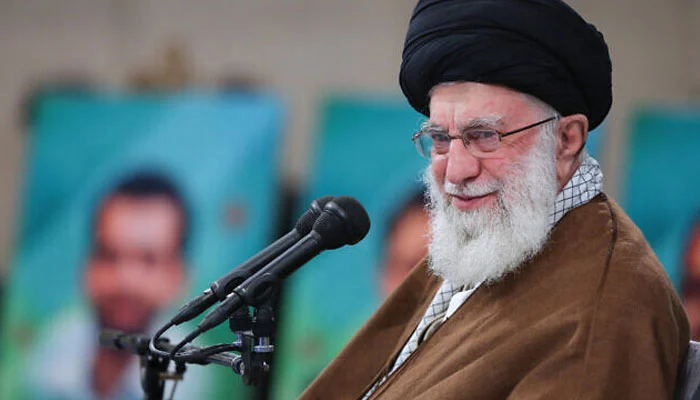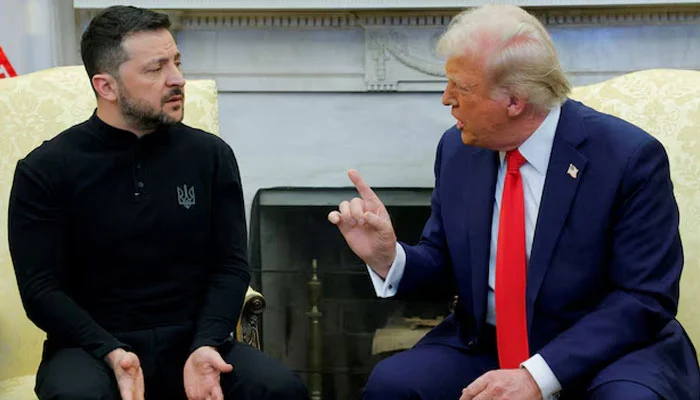LAHORE: As Iran’s Supreme Leader Ayotallah Khamenei has called upon Muslim countries to halt trade with Israel, including oil exports to the Zionist nation, Jordan has said it would immediately recall its ambassador from Jerusalem in protest at the war against Gaza’s Hamas rulers triggered by the group’s October 7 attacks.
A few days ago, addressing a massive pro-Palestinian rally in Istanbul, Turkish President Recep Tayyip Erdogan had termed Israel an occupier in its war in Gaza.
Israel-Turkey bilateral trade volume was standing at around $8.5 billion till May 2022.
As far as Israel’s business with other Muslim nations is concerned, Al-Jazeera TV stated in September 2023 that trade between Israel and the UAE surpassed $2.5 billion in 2022 and reached $1.85 billion in the first seven months of 2023 according to Reuters news agency.
A couple of years ago, a leading Turkish media house TRT World had written: “Trade between Israel and countries in the Middle East and North Africa has accelerated significantly in 2021. In the first seven months of 2021, its trade grew by 234 per cent compared to the same period in 2020, according to figures cited by Israel’s Central Bureau of Statistics. Israel business volume with Jordan increased from $136.2 million to $224.2 million. Meanwhile data showed volumes with Egypt rose from $92 million to 122.4 million, and exchange with Morocco went from $14.9 million to $20.8 million. Bahrain, which didn’t engage in any trade with Israel during the first seven months of 2020, registered $300,000 worth this year. The data cited did not include trade in tourism and services.”
The Istanbul-based Turkish public broadcaster, which broadcasts in English 24 hours a day, had stated: “These figures come a year after Israel signed a set of normalization agreements with Arab and Muslim countries known as the so-called Abraham Accords under the auspices of then-US president Donald Trump’s administration. The UAE was the first Gulf country to sign the agreement, before Bahrain, Morocco and Sudan followed suit. Egypt and Jordan were previously the only Arab nations to have established diplomatic relations with Israel in 1979 and 1994 respectively. The deals broke with the long-standing idea that Arab nations would not normalize with Israel until it reached a comprehensive peace deal with Palestinians. The agreements were condemned as treasonous and a stab in the back by Palestinians.”
Israel enjoys trade ties with various Muslim countries like Turkey, Nigeria, Malaysia, Kazakhstan, Azerbaijan, Indonesia, Uzbekistan, Senegal, Turkmenistan and others.
Research shows that in 2021, Israel had diplomatic ties with 168 of the other 192 United Nations Member states. However, 28 UN member states, including Pakistan, Kuwait, Oman, Saudi Arabia and Bangladesh, have either never established, or have broken off diplomatic relations with Israel. In 2020, Israel signed agreements establishing diplomatic relations with four Arab League countries including Bahrain, the UAE, Sudan and Morocco. In 2012, Israel’s trade with Lebanon, Syria and Iran, directly and indirectly, was banned. On January 19, 2012, a top Israeli newspaper Haaretz had revealed: “Trade continues covertly with Indonesia at the lowest possible profile and without diplomatic relations. Singapore serves as a base for businessmen trying to penetrate there. In 2007 a subsidiary of Ormat Industries signed a $200-million contract to supply electricity for 30 years. Ormat is part of a consortium on this project, with a Japanese bank providing most of the funding.” The media house had added: “Quite a number of Israeli companies export products to Saudi Arabia, including technological goods. This is sometimes done through their US-registered subsidiaries, thanks to the strong relations between the US and Saudi Arabia. Israeli companies, such as body armor manufacturer Rabintex Industries, have also provided equipment to US forces stationed in Saudi Arabia.”



